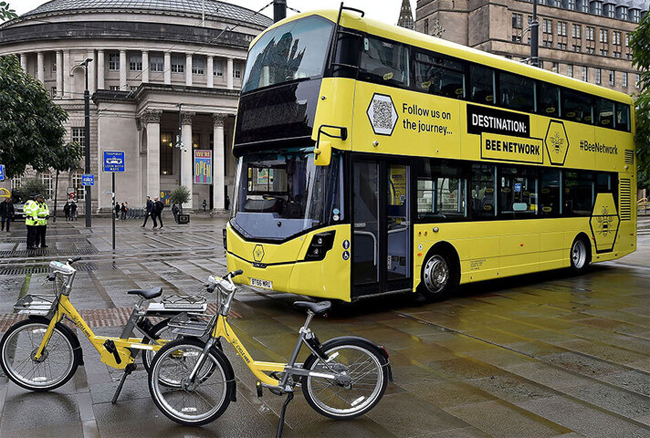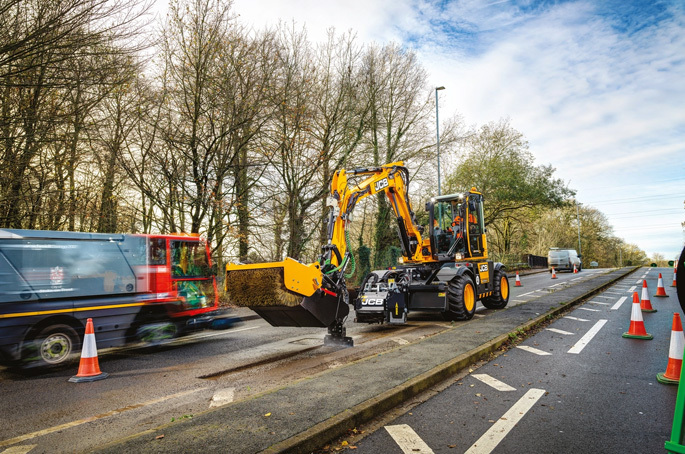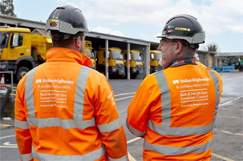The Department for Transport has set out plans for a ‘more joined up and locally-led transport across England'.
The announcement was made by the now former transport secretary Louise Haigh, who resigned shortly afterwards due to an unearthed minor conviction in her past.
The department said this will be the first integrated national transport strategy in a quarter of a century.
In a speech to mayors and transport bosses in Leeds on Thursday, Louise Haigh said the strategy would set out a ‘people first approach' on how government can support local areas ‘to make all forms of transport work together better'.
The Department for Transport (DfT) said the strategy will set out a clear vision for how transport across England can evolve over the next 10 years so that more places offer seamless door-to-door journeys like those facilitated by the Bee Network in Greater Manchester (pictured) and Transport for London.
After visiting the city earlier this year, Ms Haigh took inspiration from Dijon, which has frequent tram and bus services and has created a single app that brings together every mode of transport including bus and tram, car and bike hire, planning journeys and paying for parking.
Ms Haigh said: ‘Integrated transport in this country is lagging behind our European counterparts, and for too long our fragmented transport networks have stunted economic growth and made it harder for people to get around.
‘I want everyone to be able to contribute to this vision and have launched a call for ideas on how the strategy can best deliver greater opportunity, healthier communities and better lives.'
The call for ideas on the DfT website runs until 20 January. The department will also be recruiting a new integrated transport commissioner ‘to oversee this new vision'.
The DfT said it is also reforming its appraisal system so that projects deliver good value for money as well as the right outcomes – such as more jobs, improved access to education and healthier communities.
Officials said the reforms will give weight to transport projects that enhance access to jobs, boost productivity, and help businesses grow, particularly in less affluent areas.
An internal panel of experts is reviewing the department's capital spend portfolio, ‘to drive better economic outcomes in our transport system'.
Ms Haigh also emphasised the importance of using data in rural areas to manage traffic flows to help drivers park.
She also outlined her intention to promote cycling and walking as the best choice for shorter journeys, and prioritising pavement repairs, safe crossing and cycle infrastructure where they are needed most.
Paul Tuohy, CEO of the charity Campaign for Better Transport, welcomed the announcement.
He said: 'Good, well-connected, public transport and active travel have the power to transform communities and local economies, enabling people to travel by a combination of sustainable modes to help reduce congestion, improve air quality and unlock economic potential.
'We want to see more UK cities given the opportunity and support to follow Dijon's example of a fully integrated, well-funded public transport network and hope this strategy will enable that.'
































